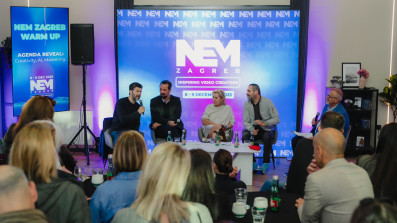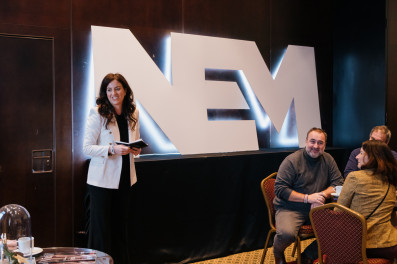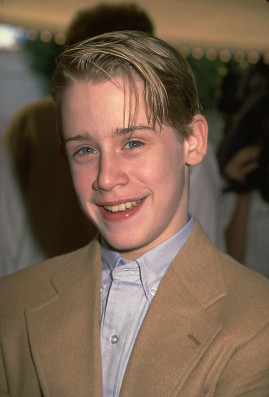Atlanta's Missing and Murdered: The Lost Children - An extensive observation of a 40-year-old crime
HBO opens many questions after the Mindhunter series revived interest in child murders in Atlanta
What distinguishes HBO documentaries is the extensive and comprehensive documentary material made according to the classical principle. These are hours and hours of archival footage mixed with newly recorded material. In a world where the docu-reality approach reigns supreme, HBO has a credible documentary approach and a strong stamp of truth on the recorded material. There is no trace of the played parts, where the actors have the task of conveying the "truth", as seen by those behind the camera. But is that always the case?
This is best seen in this new controversial documentary from 2020. A series of five episodes deals with a 40-year-old case of a serial killer from Atlanta. It’s a case that had its court ending, convicted murderer Wayne Williams is still behind bars. Like the trial itself and the retrial, this five-hour series provoked conflicting reactions from the public and viewers.
From Netflix and Mindunter to HBO and their Atlanta's missing and murdered...
On August 16, 2019, the second season of the Netflix hit - Mindhunter - came out. Behind the great success of the series are names like David Fincher, Charlize Theron and Joe Penhall. Where is the correlation between the HBO documentary and the Netflix blockbuster? The already mentioned case of child homicides in Atlanta. As for Netflix, there is no dilemma. Agents Ford and Tench have theorized that a serial killer always acts within the confines of his race, in this case, the black race. That the killer was black-skinned was greeted with a knife in the public of Atlanta, especially among the families of the murdered black children. HBO further develops that side of the story. The first two episodes, the introductory one, we get to know in great detail the situation in the city of Atlanta in the early 80s of the last century. Most of the archival footage relates to conversations with the families of abducted and murdered children, as well as contacts with black activists of the time. Most advocates a racial murder theory, with families and Atlanta journalists leading the way. The racial divisions of the American South are living in the daily life of the black metropolis of the southern USA.
The KKK is further horny as Atlanta in the 1980s is the first major American city to elect a black mayor, Maynard Jackson. He was at the helm of the city between 1974-1982, at a time when horrific child murders had taken place. The black mayor-appointed black police chief Georg Napper, who headed the city police and led the investigation that ended with the arrest of Wayne Williams. Then why didn't the investigation go in the direction of arresting important KKK members? The FBI was an advisory body and had no operational function. As such, he could not have had any influence on the investigation into the racial killings.
So what do we get across five episodes?
After the first two episodes, which are mostly archive recordings and conversations with witnesses of the time when the murders took place, we come to the main suspect - Wayne Williams. The investigation was initially unrelated and slow, because the victims were black and poor, which is an undeniable truth. But even when the police were pressured from all sides, there were no results for a long time. Certain laboratory findings have singled out several types of fibres that occur on almost all homicide victims. That will prove decisive in the trial of Wayne Williams. But he should have been arrested first. And it happened in an ambush on one of the bridges on the Chattahoochee River.
On May 22, 1981, detectives heard a splash in the water, something was thrown from the bridge into the river. Police stopped a Chevrolet station wagon, driven by 23-year-old Wayne Williams, a self-proclaimed music promoter. He was detained due to an incoherent explanation that he went to a morning meeting regarding a music audition at 2:30 in the morning. An utterly unconvincing explanation fell into the water when the body of Nathaniel Carter, a 27-year-old black young man, killed the day before, emerged from the water. Wayne Williams was tried for that murder and the murder of Jimmy Ray Payne, a 22-year-old black young man. After he was found guilty, the public and the family of the other murdered remained shocked. Of the 29 victims, only the last two murders have been tried. The investigation was immediately suspended after the final conviction, and the families felt that justice had not been served.
2019, Keisha Lance Bottoms, Mayor of Atlanta reopens the Wayne Williams case, hoping to use modern technology to get a clearer insight into whether Wayne Williams killed all those children, or killed several, and all the other murders are attributed to him. The last, fifth episode of the HBO documentary series deals with the appeal at the retrial of Wayne Williams. New evidence is presented that casts a slightly different picture on the case. All witnesses from the first trial are discredited. New defence witnesses are being introduced into the game, insinuating the KKK's involvement in at least a few killings. As much as the authors of the series string together archival footage of the investigation leading to the arrest of Wayne Williams at the beginning, in the fifth episode they completely twist the whole story.
The fifth episode is entirely devoted to linking the KKK to the killings. With you, the racial background of the murders stands out to me, emphasizing that the killer is white-skinned. Most experts from the time of the first investigation did not change their opinion about who the killer was. It doesn’t matter if the skin is black or white. They are also helped by the fact that not a single child has been killed since Wayne Williams was in prison. žđ
HBO has raised doubts about the case
On the other hand, it is justifiably pointed out that these last two murders are in some ways a deviation from the scheme of killing children. Wayne Williams has been convicted of murdering a 29-year-old and a 22-year-old. Until then, most of those killed were children or teenagers. Whether anyone took the opportunity and attributed their murders to Wayne Williams is up to you to judge. HBO has raised doubts about the correctness of solving the murders of children in Atlanta.
The five-part series is pervasive extensive and well crafted. If the first two and the last two episodes were combined, the series would be even better. But it’s an old familiar story when it comes to HBO documentaries. They have too much archival material, so it’s hard for them to get rid of some of it. But I think that a three-part series would achieve its purpose: to introduce us to all aspects of the crime and open some new questions.














